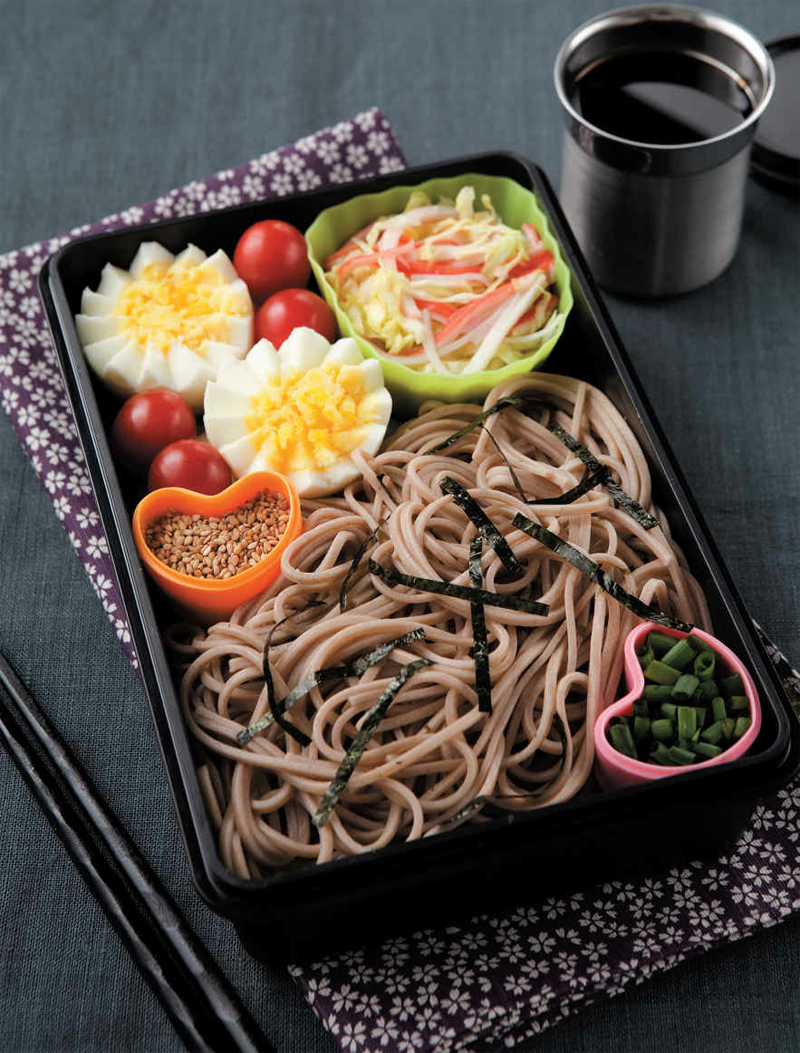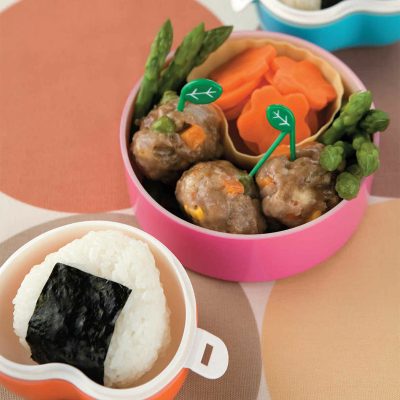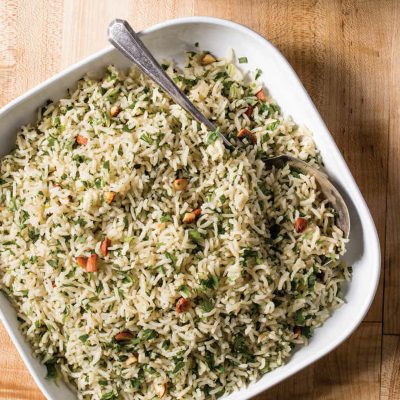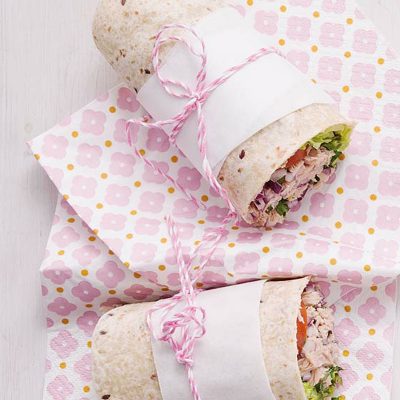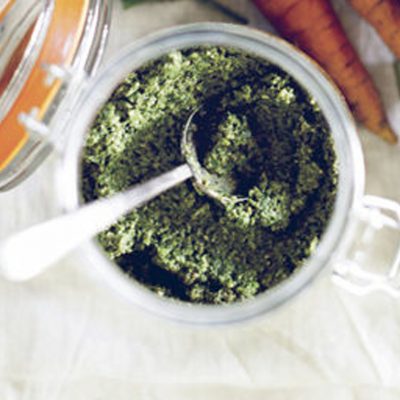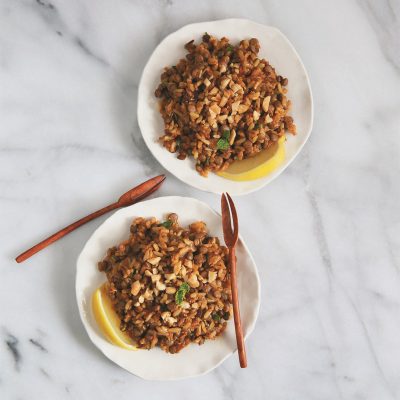Ingredients
-
For the Noodles
-
3½ oz (100 g) dried Soba Noodles
-
For the Condiments
-
2 Tbsp finely chopped Green Onion
-
½ Tbsp White Sesame Seeds
-
1 Tbsp finely shredded Nori
-
Shichimi
-
Dipping Sauce
-
¼ cup (60 ml) Dashi Stock
-
¼ cup (60 ml) Kaeshi
-
Kaeshi
-
¾ cup (180 ml) Mirin
-
¾ cup (150 g) Granulated Sugar
-
4¼ cups (1 L) dark Soy Sauce
-
Crabmeat and Cabbage Salad
-
1 cup (70 g) finely shredded Cabbage
-
¼ tsp Salt
-
1 Tbsp Rice Vinegar
-
1 tsp Sugar
-
¼ cup (30 g) Crab Meat
-
Black Pepper
-
Hard-boiled Egg
-
Egg
Directions
Soba noodles provide a nice change of pace from rice-based bentos. The accompaniments are a simple hard-boiled egg and a cold crabmeat salad. Served chilled, this bento is a great lunch for a hot summer’s day.
Steps
|
1
Done
|
Bring a large pot of water to a boil soba noodles need plenty of water to cook. Using an electric kettle to boil the water will speed things up. |
|
2
Done
|
Put the noodles in the boiling water and lower the heat. The water should just bubble gently, not be at a rolling boil as for Italian pasta. Stir gently with chopsticks until the noodles are immersed in the water. Cook for 5–8 minutes, until the noodles are cooked through they should be softer than Italian pasta, with no uncooked core, a bit past the al dente stage. If the water threatens to foam out of the pan as the noodles cook, add a little cold water. |
|
3
Done
|
Drain the noodles into a colander to get rid of the boiling water. Fill the pot with cold water, and put the noodles back in to cool them down rapidly. Rinse the soba noodles for about 5 minutes, rubbing the noodles gently with your hands and changing the water frequently or just letting water run from the tap, until they feel smooth and firm and not at all sticky. |
|
4
Done
|
Take little bundles of a few strands of soba at a time out of the water, and drain them on a flat basket or in a colander. |
|
5
Done
|
Dipping SauceCombine the dashi and the kaeshi. Alternatively, use store-bought ready-made noodle-sauce concentrate, called men-tsuyu (available in the bottled sauce section of a Japanese grocery store), diluted according the instructions on the bottle (usually a 50/50 mix of water and men-tsuyu). |
|
6
Done
|
Pack the dipping sauce in a separate container that closes very securely I like to use a small jam jar with a screw-top lid. To eat, just pour the sauce over the soba, add the condiments, and mix well. You can have the egg separately, or mash it into the noodles and sauce delicious! |
|
7
Done
|
KaeshiPut the mirin in a saucepan over high heat and bring to a boil. Lower the heat and simmer for 5–6 minutes. |
|
8
Done
|
Add the sugar and stir until melted. Add the soy sauce and heat up slowly over medium-low heat, stirring several times, until the surface is barely bubbling. It should not boil vigorously or the flavor of the soy sauce will dissipate. Simmer gently for 5 minutes, skimming off any white scum that forms on the surface. |
|
9
Done
|
Let cool and store in a glass jar or other nonreactive, airtight container. The kaeshi can be used immediately but is better if rested for at least a day. Store in the refrigerator or other cool, dark place. It will keep for several months. |
|
10
Done
|
Crabmeat and Cabbage SaladMassage the shredded cabbage with the salt until the cabbage has wilted it will shrink down in mass quite a bit. Squeeze well to expel excess moisture. |
|
11
Done
|
Put in a bowl, add the vinegar and sugar, and mix. Add the crabmeat and taste; add a little more salt if needed. Sprinkle with sansho or black pepper. |
|
12
Done
|
Hard-boiled EggPut in a pan and add cold water to cover. Bring to a boil while rolling the eggs around occasionally to stop the yolk from settling to one side. Once the water is boiling, turn off the heat and place a lid on the pan. Leave for 10 minutes. |
|
13
Done
|
Drain, and run cold water over the eggs until they are completely cooled. Crack the shells all over and peel immersed in water, making sure any small bits of shell are washed off. Unpeeled eggs can be stored in the refrigerator for 3–4 days; peeled eggs for 1–2 days. |

